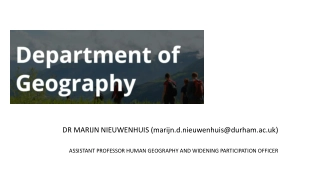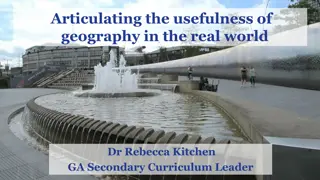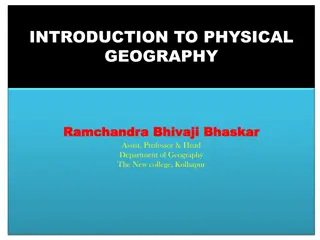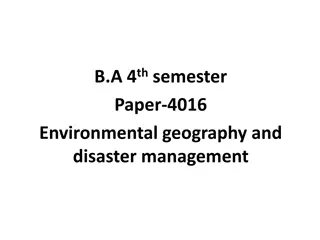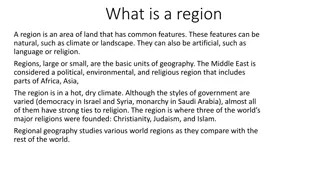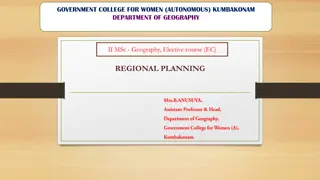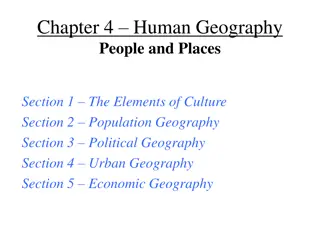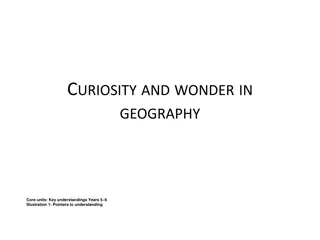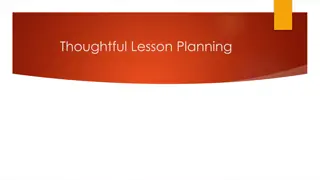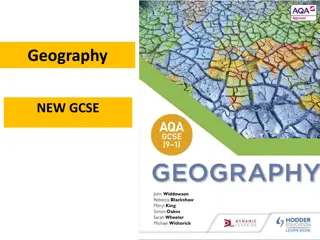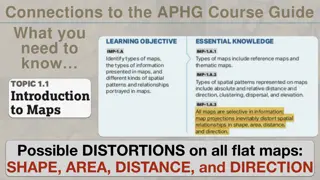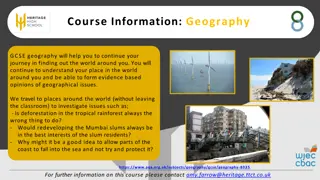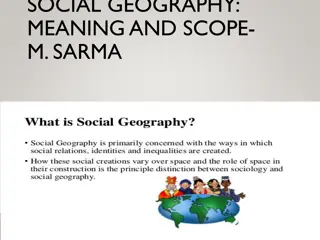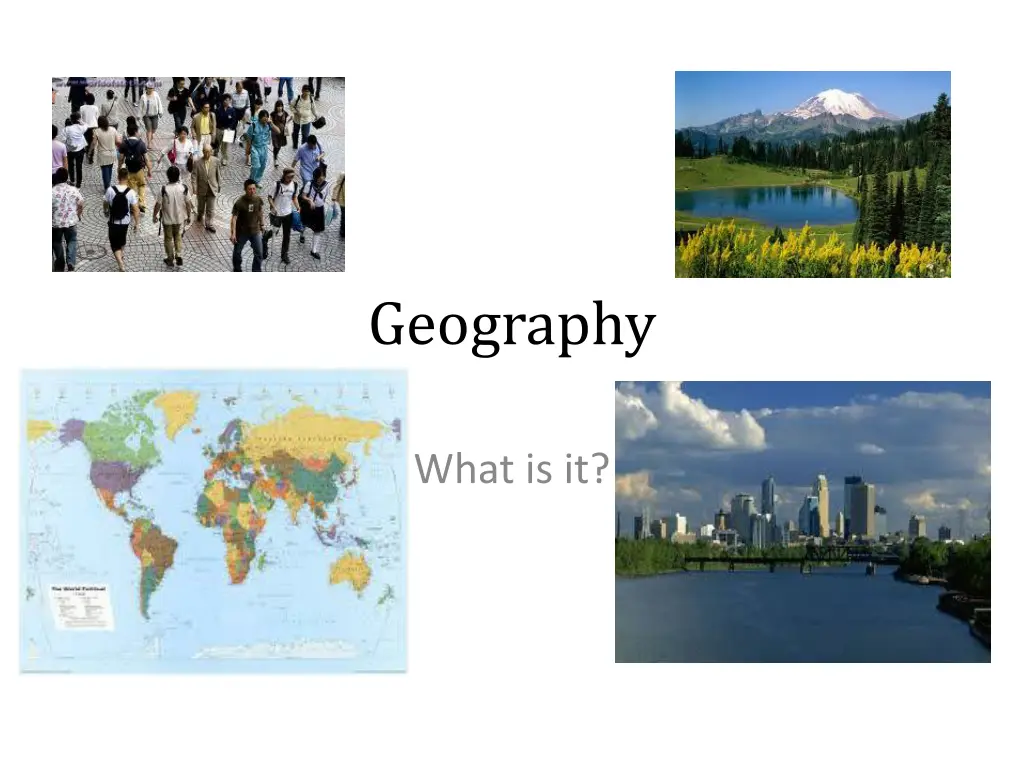
Understanding Geography: The Essential Elements Explained
Explore the world of geography, a science that encompasses the study of people, places, and the environment. Discover the six essential elements of geography, including the world in spatial terms, places and regions, physical systems, human systems, and environment and society. Learn how geography utilizes maps, cultural influences, physical processes, population characteristics, and more to provide insights into our diverse world.
Download Presentation

Please find below an Image/Link to download the presentation.
The content on the website is provided AS IS for your information and personal use only. It may not be sold, licensed, or shared on other websites without obtaining consent from the author. If you encounter any issues during the download, it is possible that the publisher has removed the file from their server.
You are allowed to download the files provided on this website for personal or commercial use, subject to the condition that they are used lawfully. All files are the property of their respective owners.
The content on the website is provided AS IS for your information and personal use only. It may not be sold, licensed, or shared on other websites without obtaining consent from the author.
E N D
Presentation Transcript
Geography What is it?
Geography is: The study of people, places, and the environment. A science that deals with the description, distribution, and interaction of the diverse physical, biological, and cultural features of the earth s surface.
Geography Has Six Essential Elements-
The World in Spatial Terms Maps and other geographic tools to get information from a spatial perspective. Uses mental maps to organize information about people, places, and environments spatially. Analysis of this information.
Places and Regions Physical and Human Characteristics of place People create regions based on Earth s complexity. How culture and experience influence people s perceptions of places and regions.
Physical Systems The physical processes that shape the pattern of the Earth s surface The characteristics and spatial distribution of ecosystems.
Human Systems Characteristics, distribution, and migration of human population. Characteristics, distribution, and complexity of earth s cultural mosaics. Patterns of economic interdependence. Processes, patterns, and functions of human settlement. Role of cooperation and conflict on Earth s surface.
Environment and Society Humans change the physical environment Physical Systems affect Human Systems Changes occur in the meaning, use, distribution, and importance of resources
Uses of Geography To interpret the past To interpret the present and plan for the future
Words to Know: Geography Physical Biological Cultural Spatial Regions Systems Ecosystems Cultural Mosaics Economic Interdependence


